- Home
- Andy McNab
Aggressor Page 11
Aggressor Read online
Page 11
I turned left on the second junction and walked uphill into a swathe of narrow roads and cramped houses that hadn’t had their wash and brush-up. Suddenly I was in the real Tbilisi, the part that was poor and decaying, and I realized that I felt at home in it, away from the land of fresh paint and shiny new tarmac.
Small bakers sold bread and cakes from a hole in the wall. Cars swerved round potholes and pedestrians who’d stepped into the road to avoid craters in the pavement. Abandoned vehicles and bulging bin bags littered the kerbs. Maybe it was garbage day. Or maybe it was just a hangover from the communist era: the belief that anything inside your four walls was your responsibility while anything outside was the state’s had come hand in hand with the hammer and sickle.
It was easy enough finding the house numbers; they were stuck to the wall on two-foot-square plastic panels that also carried the street name in Paperclip and Russian. It felt like another depressingly uniform throwback to the old days, but I guessed at least it meant the postman wasn’t going to make a mistake with the Christmas cards – unless you lived in one of the fancier places. They seemed not to have to advertise themselves.
Electric cables ran in every conceivable direction above my head, emerging from what looked like home-made junction boxes stuck on trees. Maybe they were; when the electricity supply is as erratic as it was here, people will always come up with ways of making sure they get their share. Rainwater dripped from gutter pipes that disgorged their contents straight into the street. I was starting to get an uncomfortable film of sweat down my back as I climbed.
I carried on uphill, the sweat now flowing freely. After navigating three crossroad junctions I got to what I hoped was Barnov Street. The target house was along here, on the left somewhere.
Old, once-elegant buildings stood shoulder-to-shoulder with the odd modern lump of glass and steel. Without exception, they were protected by high walls, some plastered and painted, some just rough concrete blocks.
I passed the French and Chinese embassies. A small hut stood outside each of them, complete with bored-looking security guard reading the morning paper. Despite appearances, and the holes in the road, this was obviously the upscale end of town.
Ladas weren’t the limo of choice up here, either. The only badges I’d seen blocking the narrow pavement in the last few minutes were VW and Mercedes. But strangely, not many of the drivers were wearing black. A lurid Hawaiian number went past in a Saab, smoking a cigar and shouting into his mobile, but still finding the time to check his slicked-back hair in the rearview. He didn’t look like he was en route to an ambassadorial reception.
This had to be mafia land. Good for them, but not good for Charlie and me. There was going to be an unhealthy amount of protection around this neighbourhood.
2
I didn’t know its number, but I could tell I was at the target house from what I remembered of the bag-fit video footage.
The top of the ten-foot-high wall glistened with broken glass. Not a problem to climb over if we had to, just a little bit time-consuming. And I was right, no number boards for the posh houses up here.
I passed the rusty sheet-steel gates on my left. So far I hadn’t seen any more on this recce than the film had shown me, except some fresh Paperclip and Russian graffiti had been daubed on the gates. The keyhole was a simple three-lever device that Charlie’s bits and pieces would defeat in seconds.
I caught a glimpse of a blue vehicle in the gap between the gates. There were two inches of clearance at the bottom, and a bolt at the base of each was rammed into the ground on the inside. Unless there was another exit, chances were Baz was at home.
The high wall continued for about three or four metres before it turned left at the junction. I followed it, and immediately saw that I still wasn’t going to learn any more about the target than I already knew.
On the other side of the road was a nightclub/ restaurant/bar called the Primorski. The neon was dead, but pictures outside its big black doors showed dancing girls straight out of Las Vegas, feathers in their hair and hardly any other kit on.
The rendered wall gave way after a few metres to bare concrete blocks, before turning once more onto a new road. I didn’t follow it left. A blue-and-white was parked up. I headed right instead, towards the cemetery. In any case, Charlie would be coming up that parallel road and would see exactly what I could from where I stood: that the crumbling buildings were crammed together so tightly, the target might as well be a terraced house with another row behind it.
If we fucked up and needed to do a runner, the easiest escape route was going to be up onto the high ground, towards the telecoms mast. There was no habitation up there. We might even be able to move along the higher ground under cover of darkness until we got level with the Marriott, and then down to get a taxi for the airport.
I now had to check the cemetery DLB, which was up on the higher ground ahead. We might even be able to see inside the target’s yard from there. I walked past a parade of shops that seemed to sell nothing but shoes. I texted Charlie: Bring binos.
I got back an OK, deleted it, and headed up the road.
The very last shop sold food. I stopped and bought a bottle of water. It was the same stuff as they had in the Marriott minibar and on top of the TV, the pride of Georgia.
At least Charlie had remembered one thing correctly. The cemetery really was no more than ten minutes away, and it was simple to find. All I had to do was follow the old folks hobbling there on their sticks, against the flow of a funeral procession heading home.
Cars that looked more abandoned than parked filled a large open area of hard-packed mud on the opposite side of the road. Maybe they were waiting to fill up at the brand new, jazzily lit petrol station to the right, so freshly opened the concrete forecourt was still white. I entered the cemetery through a knackered iron gate attached to the remains of a broken-down wall and ran the gauntlet of the dozen old women selling flowers and long skinny candles.
The cemetery itself was as busy as a mall, and unlike anything I was used to in the West. Instead of neat lines of headstones, this place was a labyrinth of large family burial areas, each fenced off with wrought iron or low brick walls.
Men and women sat chatting away to each other, cradling flasks of tea or coffee, at tables fixed to the ground close by the graves. One old guy was drunk, even this early in the day, and ranted at one of the stones. I had the feeling he was getting his own back for a lifetime of nagging.
Water taps were sited every twenty metres or so along the central path, and people were either washing out their cups or refilling vases at most of them.
A woman sitting at a table full of candles tried to sell me a few when she saw me empty-handed, but I kept on walking, keeping to the central path. The most luxurious areas, I noticed, were immediately adjacent to the pathway. You obviously paid a premium in this country to keep your shoes clean. Off the pathway, people had to squeeze between other family plots to get to their own. One had a glass-covered oil painting of a dancing clown set into it. A fine, black granular substance was spread on the ground between the plots, and it obviously worked. There wasn’t a weed in sight.
I tried to look like I was doing the same as everyone else, browsing at other people’s tombstones as I made my way slowly to my family plot. I was looking for Tengiz’s final resting place. All Charlie had been told was that it was along the main path. I had no idea if I was looking for a man or a woman, not that it was going to matter. We’d be fucked either way if the inscription was in Paperclip.
Our luck was holding. I came to a large black marble headstone in a square plot covered with white stone chippings, cordoned off by a newly painted white wrought-iron fence about two feet high. I saw now why Whitewall had chosen it. Engraved portraits of four defiant-looking men stared out at me, with the single English word Tengiz chiselled beneath a whole load of Russian and Paperclip.
There was a black marble two-seater bench with a solid-looking base, and a rusting,
galvanized rubbish bin, full of dead flowers, set off the pathway to one side. If it was left there permanently, I’d use it as a marker.
A line of women were sitting by the next plot, knitting and chewing sunflower seeds. They were gobbing off at warp speed, and there was a fair amount of tutting and eyes raised to the clouds as I passed. I wondered if it had anything to do with the jumper.
I checked the rest of the main path just in case there were another five Tengiz plots to choose from, but there weren’t. It was time to see if there was a vantage point up here from where I could look down into the target yard. If there wasn’t, we’d be going in blind.
I spotted a place, right on the edge of the cemetery, where a lone wooden bench faced out over the ghetto. There was a sheer drop of about twenty feet down to the road below; the main gate would be along the road to the left somewhere. To get there, I had to pass rows and rows of quite recently installed headstones, each engraved with a picture of a young man or woman who seemed to have died in 1956. It looked as though, after the fall of communism, the bereaved had at last had a chance to commemorate some of Stalin’s million or so victims.
I reached the bench and sat down. All I had to do now was try and work out which house belonged to Baz.
I called Charlie, who was still shopping for binoculars. ‘I’ve found a possible on the path. We just need to check that the block supporting the slab isn’t solid, otherwise I’ve got the wrong one. If you follow the perimeter left from the main, mate, I’m up on the high ground.’
3
Charlie joined me on the bench about twenty minutes later. By then, I had worked out where the target was, and could just about make out the blue vehicle in the yard and most of the front of the house that faced the yard, and us. There was a front door with a window each side and another two directly above them on the first floor. But from this distance, we’d need binos to see any detail.
He had a carrier bag in his hand. ‘Fucking hell, I thought graveyards were supposed to be havens of tranquillity. It’s like a fairground here.’
‘What do you reckon on the DLB, old one?’
‘The four guys eyeballing God by the flower bin? It’s got to be the one. The bench support is a square of four sections. It’s got to be hollow inside. Anyway, I’ll find out tonight, won’t I?
‘I picked up a comic for you at the hotel. Something to keep you occupied while I do all the work.’ He fished a newspaper out of the bag, followed by a pair of green miniature binos, still in their packaging.
It was the Georgian Times, an English-language weekly that came out on Mondays. I studied the front page as he unpeeled the binos.
George Bush was to visit Tbilisi on 10 May, on his way back from the VE Day celebrations in Moscow. TBILISI IN ANTICIPATION OF GREAT VISIT, yelled the headline. Then: TBILISI LOOKS LIKE A PARROT.
It seemed the locals were honking about the yellows and pinks being splashed all over buildings to cover the grime.
‘It all makes sense now. Dubya on his way, new tarmac roads. I bet he’s like the Queen, thinks the whole world smells of fresh paint and floor polish.’
Charlie snorted with laughter. ‘Thought you’d like it. Maybe the rush on this job has something to do with his visit. You know, sort out any local difficulties before the main man shows up.’ He shifted the binos up to his face and got busy focusing them.
I flicked through the rest of the paper. It didn’t seem to go a bundle on world news. Most of the spreads were devoted to groups of smiling people shaking hands outside some local company’s HQ, with a caption saying wonderful things about partnership in enterprise, and the importance of spreading the message of Georgian business worldwide. One small article announced that the government had demanded yet again that the Russians pull back their forces. But yet again the Russian answer was yeah, yeah, like we said, wait until 2008 – or words to that effect.
I scanned the rest of the page. ‘Hot pipeline news,’ I said. ‘Says here it’s coming in on time. It’ll start pumping by the end of May.’
‘Not my cup of tea, lad.’ The binos were lined up on the target. ‘I went straight to page three. Check it out – lovely pair of peaks.’
I turned back. ‘Oh yeah, good one.’ I was looking at a picture of the hills of Borjomi National Park. ‘That’s where the water comes from.’ I read the piece more closely. ‘Oh dear, seems somebody’s fucked up. The pipeline goes straight through here, and a fuck sight too close to the natural springs. Georgia’s biggest export will be history if there’s a landslide and the pipeline fractures. There’s shit on in the government. “Pressure groups demanding an inquiry,” it says here. The World Wildlife Fund are leaping up and down. There’s all sorts going on. Did you find the horoscopes?’
Charlie was still studying the target. ‘Fuck, Nick.’ The binoculars trembled in his hands. ‘Looks like there’s proximity lighting – and a couple of cameras covering the inside of the courtyard. Here, what do you think?’
I swapped him the paper for the binos. A group of old women passed behind us, each with a burning candle in one hand and a bunch of flowers in the other. They were all dressed in black and bundled up in headscarves.
I looked down at the house.
‘That his Audi?’
‘Yep, blue and in shit state. I even have the plate for later on. If he’s on the take like Whitewall says, you’d think he could afford a decent motor.’
He was right about the lighting; the corner nearest us had CCTV and arc lights mounted on both front corners of the house. Under each arc light was a black plastic cylinder that we’d have to assume was a proximity detector. We hadn’t seen any of it during the walk-pasts because they were at first-floor level, hidden by the wall.
One camera on the right-hand corner was angled in the direction of the gate and another covered the side of the house, aiming towards the rear, just like the camera on the left-hand corner. There’d be another one at the back, no doubt. I studied the gates.
‘I still think the bolts are manual.’ I lowered the binos. ‘Did you see them on your walk-past?’
‘No. What do you reckon about the two outhouses?’
The binos went back up. The only windows that would get any light into the ground floor would be the ones by the front door. There was a gap of no more than two metres between the wall and the house at the sides and rear. Maybe the building had originally had a fence and no neighbours.
Two small brick outbuildings faced the house, about ten metres across the cracked concrete courtyard. If we came in through the gate, they’d be down to our right, the Audi dead ahead and the front door to our left. ‘Good place to hide while we sort our shit out? If he’s in, at least we’d have somewhere to sit and think.’
The front of the house was flat. Three steps led up to a recessed porch. The door was solid natural-coloured wood, with two lever locks on the right, one a third of the way up, the second a third of the way down, and a handle in the middle. From this distance I couldn’t tell if the handle also had a lock. The floor was lined with cracked, blood-red quarry tiles and a coir mat.
I felt a few specks of rain on my face. Mist was rolling in from the other side of the city. Three young guys walked past. They had their hoods up on their multicoloured nylon shell suits, and they were trying hard not to look furtive, but failing.
Charlie grinned. ‘Looking for somewhere to try out a bit of home-grown poppy from the north, I fancy.’ He wiped the moisture from his cheek. ‘So the house – piece of piss, or what?’
‘Don’t know yet. I need to give it some thought once we get back to the hotel. You?’
‘Easy. Chances are, any motion detectors down there are just for the lights, maybe they even kick off the CCTV as well. Why rig them up to the alarms? They’d go off every time a bat flew past. Poor Baz’d be up all night, wouldn’t he?’ He took the binos from me. ‘Know what, lad? I think we should just go for it. Street lighting is shite. Through the gates, do the old anti-detector crawl, up to the
main door. I’ll get that open, do the business, and then we’ll get our arses up here and DLB the lot. Then it’s back to the hotel in time for breakfast. A nice early one, mind, because I’ve got a very important appointment with Air Georgia.’ He brought down the binos and grinned at me. ‘That sound like a plan?’
‘Sounds like a fucking nightmare.’
He pulled open his jacket and shoved the binos inside. ‘Give me a few. I can walk past that nightclub for any escape routes round the side.’
I picked up the paper again. ‘OK, I’ll follow in fifteen.’
Charlie stood up and rested his hand on my shoulder. ‘Listen, lad, I want to say thank you . . .’ He paused, and seemed to have difficulty swallowing. ‘For a while there I thought you weren’t coming. That worried me. I really do need your help, so thanks.’
I didn’t know what to do. My head sort of froze. Fucking hell, what was he going to do next? Kiss me? ‘I hope you remember the way back, you silly old fucker . . .’
Charlie smiled; he knew it was just a bit too much for me. Man to man, my comfort zone with emotions didn’t extend much further than the message on his glass tankard.
‘Maybe, maybe not. If I get lost, I’ll ask a nice policeman. Fucking enough of them about, aren’t there?’
He walked away and I instantly regretted not telling him how I felt. He was my friend, and of course I would never have left him. But that was another of my many problems. I only ever knew what to say after the event.
I looked at the paper for another ten minutes, my mind full of what-ifs. What if Baz was in the house? What if he met us as we were trying to go up the hallway? What if there wasn’t even a safe?
To me, three hours of planning for three minutes’ work was always time well spent. But maybe Charlie was right. What was I worried about? We would go through the plan, and all the what-ifs, at the hotel.
I found myself thinking of Silky again, and concentrated hard on all the positive stuff. It took about another five minutes to realize it wasn’t working. Try as I might, I couldn’t overcome my biggest concern: that Charlie might forget what the plan was once we were on target.

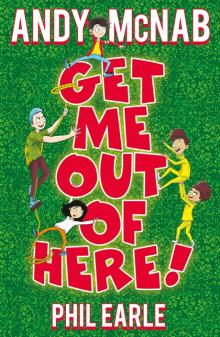 Get Me Out of Here!
Get Me Out of Here!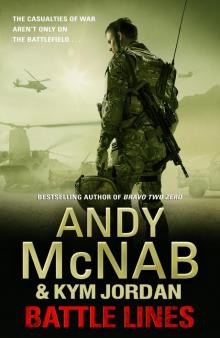 Battle Lines
Battle Lines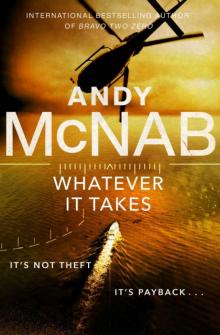 Whatever It Takes
Whatever It Takes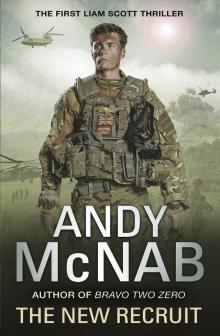 The New Recruit
The New Recruit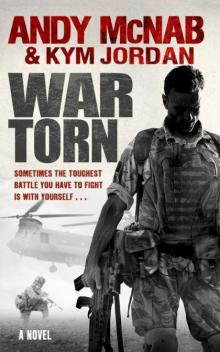 War Torn
War Torn Brute Force
Brute Force Crossfire
Crossfire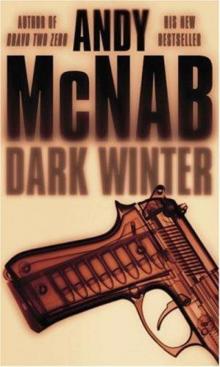 Dark Winter ns-6
Dark Winter ns-6 The Grey Man
The Grey Man Spoken from the Front
Spoken from the Front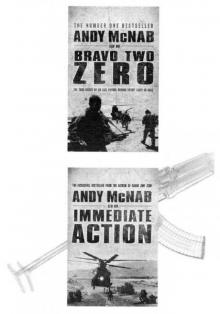 Meltdown
Meltdown Recoil
Recoil Nick Stone 1 - Remote Control.
Nick Stone 1 - Remote Control.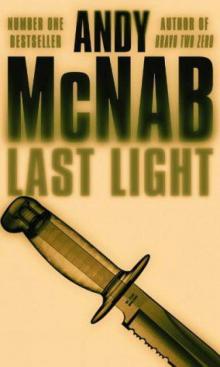 Last Light ns-4
Last Light ns-4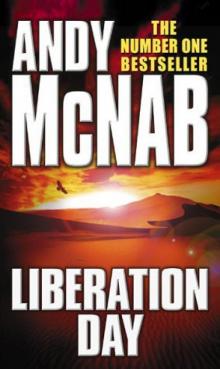 Liberation day
Liberation day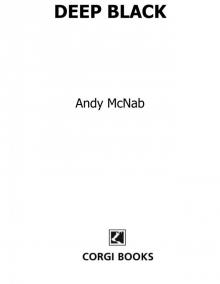 Deep Black
Deep Black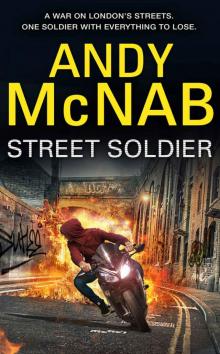 Street Soldier
Street Soldier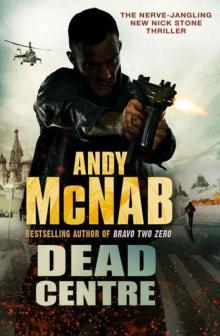 Dead Centre ns-14
Dead Centre ns-14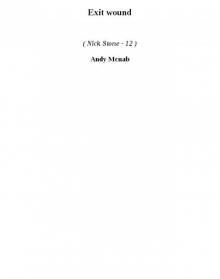 Exit wound ns-12
Exit wound ns-12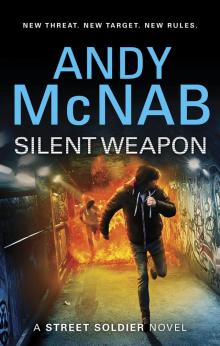 Silent Weapon
Silent Weapon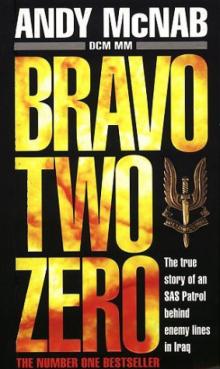 Bravo two zero
Bravo two zero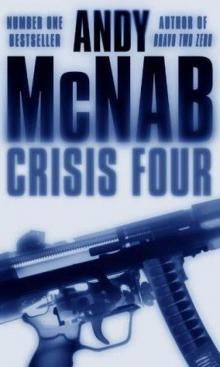 Crisis Four ns-2
Crisis Four ns-2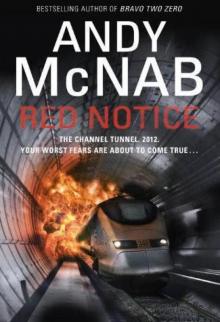 Red Notice
Red Notice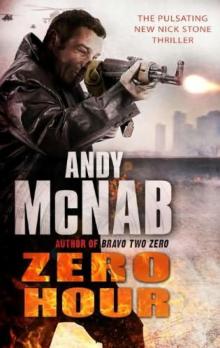 NS13 Zero Hour
NS13 Zero Hour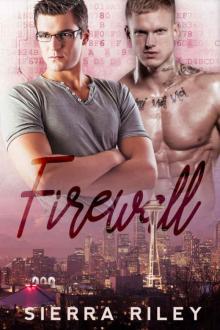 Firewall
Firewall Last Light
Last Light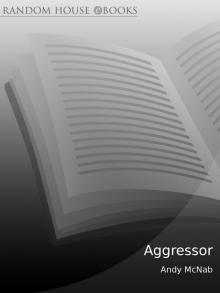 Aggressor
Aggressor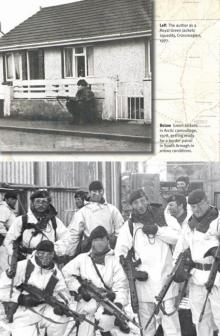 Seven Troop
Seven Troop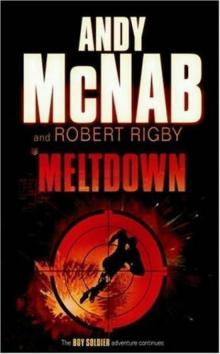 Meltdown bs-4
Meltdown bs-4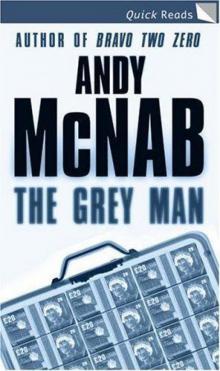 The Grey Man (quick reads)
The Grey Man (quick reads)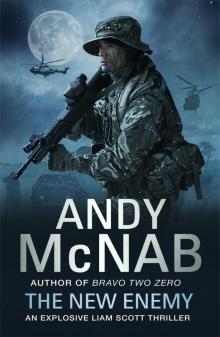 The New Enemy
The New Enemy Avenger
Avenger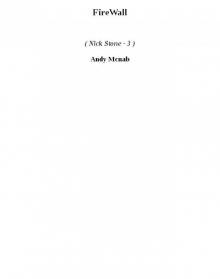 FireWall ns-3
FireWall ns-3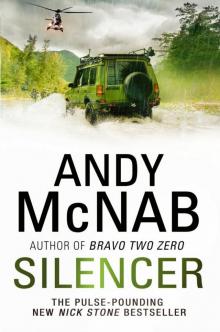 Silencer
Silencer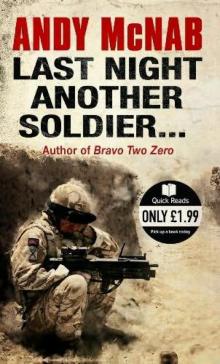 Last Night-Another Soldier…
Last Night-Another Soldier…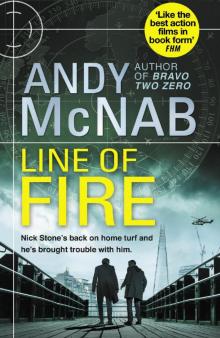 Line of Fire:
Line of Fire: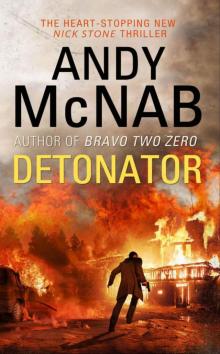 Detonator
Detonator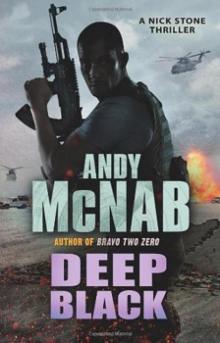 Deep Black ns-7
Deep Black ns-7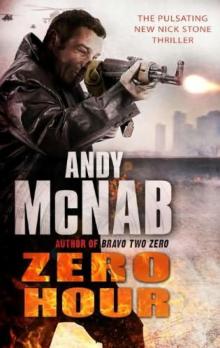 Zero Hour (2010) ns-13
Zero Hour (2010) ns-13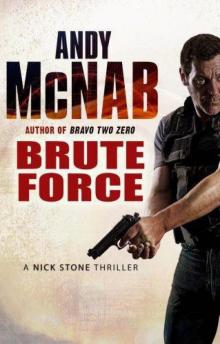 Brute Force ns-11
Brute Force ns-11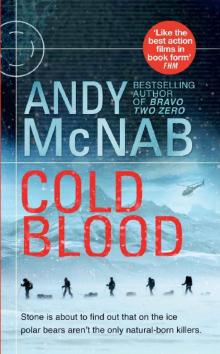 Cold Blood
Cold Blood Terminal Velocity
Terminal Velocity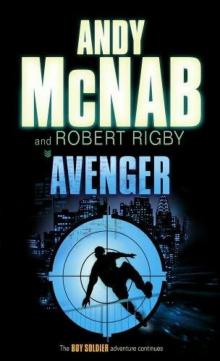 Avenger bs-3
Avenger bs-3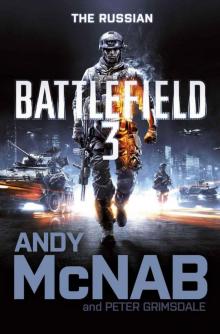 Battlefield 3: The Russian
Battlefield 3: The Russian DropZone
DropZone Zero Hour
Zero Hour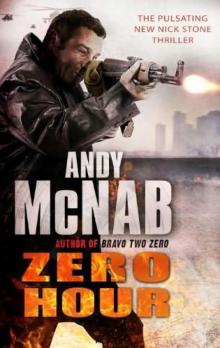 NS13 Zero Hour (2010)
NS13 Zero Hour (2010)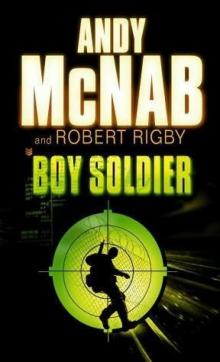 Boy soldier bs-1
Boy soldier bs-1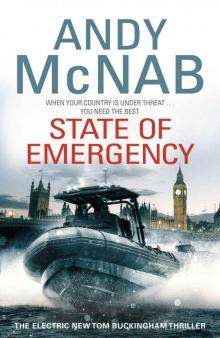 State Of Emergency: (Tom Buckingham Thriller 3)
State Of Emergency: (Tom Buckingham Thriller 3)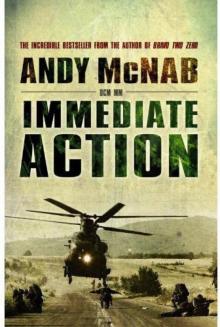 Immediate Action
Immediate Action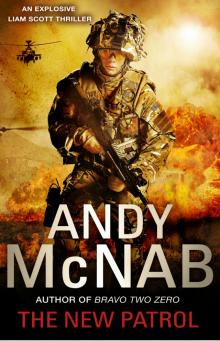 The New Patrol
The New Patrol Crisis Four
Crisis Four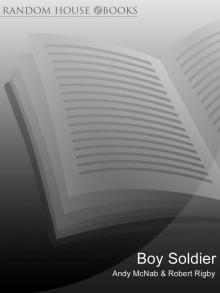 Boy Soldier
Boy Soldier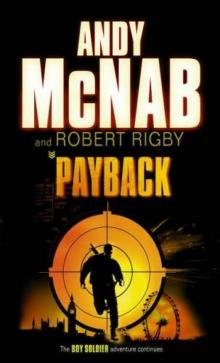 Payback bs-2
Payback bs-2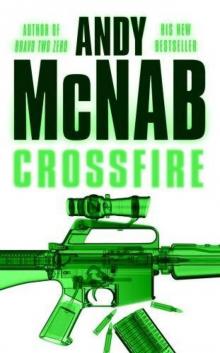 Crossfire ns-10
Crossfire ns-10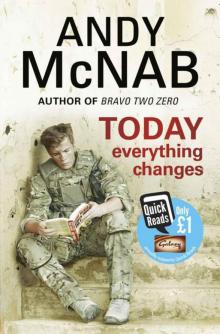 Today Everything Changes: Quick Read
Today Everything Changes: Quick Read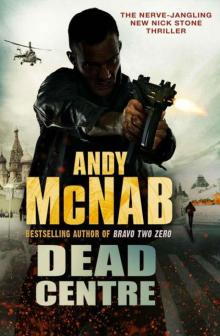 Dead Centre
Dead Centre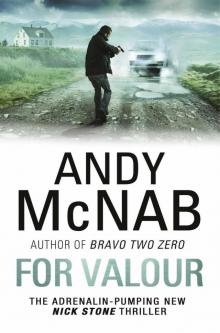 For Valour
For Valour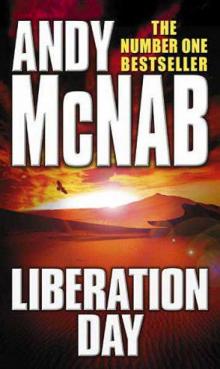 Liberation Day ns-5
Liberation Day ns-5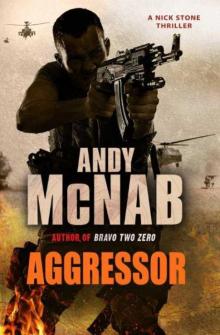 Aggressor ns-8
Aggressor ns-8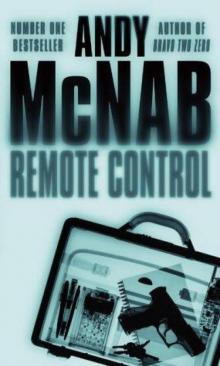 Remote Control ns-1
Remote Control ns-1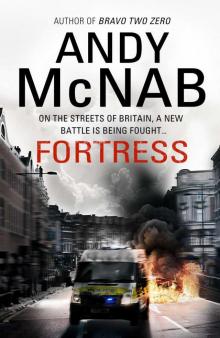 Fortress
Fortress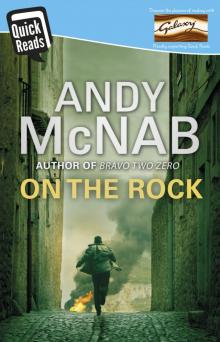 On the Rock
On the Rock Dark Winter
Dark Winter